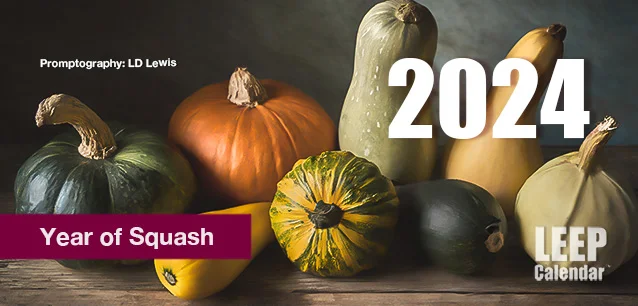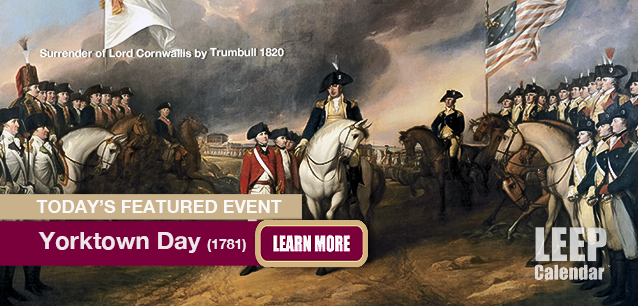 AD
AD
Country
- Africa
- Alcohol, Tobacco & Drugs
- Animals, Fish, Insects & Birds
- Anniversaries
- Australia
- Books
- Brazil & S.America
- Buddhism
Category
- Afghanistan, AF
- Aland Island, AX
- Albania, AL
- Algeria, DZ
- American, Samoa, AS
- Andarra, AD
- Angola, AO
- Anguilla, Al
Event Type
- Daily
- Weekly
- Annual
- Recurring
Duration
- All
- 1 Day
- 2 Day
- 3 Day
- 4 Day
- 5 Day
- 6 Day
Event Type
- Daily
- weekly
- Annual
- Recurring
Event Type
- Daily
- weekly
- Annual
- Recurring
Today is: October 19
Birth of the Baha'u'llah, (1817)
Bridge Day Festival, Fayetteville, (US-WV)
Evaluate Your Life Day, Ntl.
Fetch Day, Ntl.
Gin and Tonic Day, Intl. (2010)
LGBTQ+ Center Awareness Day
Medical Assistants Recognition Day
Oyster Festival US, Leonardtown (US-MD)
Seafood Bisque Day
Sloth Day, Intl
Sweetest Day
Yorktown Day, Virginia (US-VA)(1781)
ACE Week
Baking Week, Ntl. (UK)
Black in Natural History Museums Week
Bone and Joint Action Week, Ntl.
Bullying Bystanders Unite Week
Character Counts Week, Ntl.
Chemistry Week, Ntl.
Coffee Week, (UK)
Felabration (NG)
Food and Drug Interaction Education Week
Foot Health Week (AU)
Forest Products Week, Ntl.
Friends of Libraries Week, Ntl.
Healthcare Quality Week, Intl.
Lead Poisoning Prevention Week of Action, Intl.
Male Breast Cancer Awareness Week, Ntl.
Massage Therapy Week, Ntl.
Newspaper Week (JP)
Pastoral Care Week
Recycle Now Week (UK)
Recycle Week, Ntl. (UK)
Red Bull Tuk Tuk Tournament (LK)
Respiratory Care Week, Ntl.
Retirement Security Week, Ntl.
Rodent Awareness Week, Ntl.
School Safety Week, Ntl (CA)
Schools Week, America's Safe
Sock it to Suicide Week (AU)
Storytelling Festival, Scottish Intl. (UK)
Stuttering Awareness Week, Intl.
Sukkot (J)
Teen Driver Safety Week, Ntl.
Towns Week, Ntl. (PH)
Veterans' Health Week (AU)
Veterinary Technician Week, Ntl.
Wolf Awareness Week, Intl
YWCA Week Without Violence
ADHD Awareness Month
Adopt-a-Dog Month, (AHA)
Adopt-a-Shelter Dog Month
Advertising, Co-op Advertising Awareness Month
Animal Safety and Protection Month, Ntl.
Antidepressant Death Awareness Month
Anxiety and Depression Awareness Month (AU)
Apple Month, Ntl.
Applejack Month
AquaTober
Architecture Month, Archtober
Arts and Humanities Month, Ntl.
Autism Awareness Month (CA)
Bake and Decorate Month, Ntl.
Bat Appreciation Month
Battery Safety Month (Auto)
Bi-national Health Week (US/CA/MX-varies locally)
Big Draw, The
Bilingual Child Month, Celebrating the
Black History Month (UK)
Black Speculative Fiction Month
Blind Month, National Meet the
Blindness Awareness Month
Book Month, Ntl.
Breast Cancer Awareness Month, Ntl.
Bullying Month, Stop, Ntl.
Bullying Prevention Month, Ntl.
Caffeine Addiction Recovery Month
Car Care Month, Ntl. Fall
Caramel Month, Ntl.
Celiac Awareness Month (US)
Cheese Month, American
Chili Month, Ntl.
Chiropractic Health Month, Ntl.
Church Library Month
Church Safety and Security Month, Ntl.
City, Urban October
Class Reunion Month
Clergy Appreciation Month
Co-op Awareness Month
Collegiate Alcohol Awareness Month, Ntl.
Company Culture Month, Global
Computer Learning Month
Contact Lens Safety Month
Cookie Month
Country Ham Month
Country Music Month
Crime Prevention Month, Ntl.
Critical Illness Awareness Month
Cybersecurity Month, Ntl.
Danger Run (US-KY, IN, IL)
Danger Run (US-KY, IN, IL)
Dental Hygiene Month, Ntl.
Depression Education and Awareness Month
Dessert Month, Ntl.
Disability Employment Awareness Month
Diversity Awareness Month, Global
Domestic Violence Awareness Month
Down Syndrome Month, Ntl.
Dyslexia Awareness Month
Eat Better—Eat Together Month
Eczema Awareness Month
Emotional Intelligence Awareness Month
Energy Action Month, Ntl.
Ergonomics Month, Ntl.
Eye Injury Prevention Month
Fair Trade Month
Family History Month
Festival of Penha (BR-RJ)
Filipino American History Month (1587)
Financial Planning Month
Freethought, Month of, Ntl.
Gain the Inside Advantage Month, Ntl.
Gay and Lesbian History Month (1979)
German-American Heritage Month (1683)
Girls Night In (AU)
Go Sober Month (UK)
Golf Month, Australia
Great Cycle Challenge (AU)
Halloween Safety Month
Head Start Awareness Month
Health Literacy Month
Healthy Lung Month
Healthy Workplace Month (CA)
Hearing, Audiology Awareness Month, Ntl.
Hemophilia, Bleeding Disorders Month, Ntl. (AU)
Hog-out Month (US-TX)
Home Eye Safety Month
Indigenous Peoples Month, Ntl. (PH)
Islamic History Month (CA)
Italian-American Heritage Month (1492)
Kartika (H)
Katik (S)
Kitchen and Bath Month, Ntl.
Learning Disabilities Month, Ntl. (CA/US)
Learning and Development Month, Ntl.
Liver Awareness Month, Ntl.
Long Term Care Planning Month
Lupus Awareness Month (UK)
Medical Librarians Month, Ntl.
Medicine Abuse Awareness, Ntl.
Menopause Month, World
Museums and Galleries Month (PH)
Muslim American Heritage Month (US)
National Sausage Month
Non-GMO Month, Ntl.
Organize Your Medical Information Month
Orthodontic Health Month, Ntl.
Pasta Month, Ntl.
Pedestrian Safety Month
Pescatarian Month, Ntl.
Pet Wellness Awareness Month, Ntl.
Pharmacist Month, American
Photographer Appreciation Month
Physical Therapy Month, Ntl.
Pickled Peppers Month
Pink Ribbon Breakfast (AU)
Pit Bull Awareness Month, Ntl.
Pituitary Awareness Month (UK)
Pizza Month, Ntl. (1984)
Polio Awareness Month, (CA/AU)
Polish-American Heritage Month
Popcorn Poppin' Month, Ntl.
Positive Attitude Month
Prenatal-onset GBS Disease Recognition Month
Pretzel Month, Ntl.
Principal's Month, Ntl.
Protect Your Hearing Month, Ntl.
Rabi al-Thani (M)
Reading Group Month, Ntl. (1917)
Rett Syndrome Awareness Month
Riyadh Season 2024 (SA)
Roller Skating Month, Ntl.
STEM Mentoring Month
Sarcastic Awareness Month
School Libraries Month, Intl.
Seafood Month
Seed Gathering Seasons (UK)
Senior's Month (AU-QLD)
Sensory Awareness Month, Ntl.
Shoctober - Defibrillator National Awareness Month (AU)
Spina Bifida Awareness Month, Ntl.
Spinach Lovers Month
Spinal Health Month, Ntl.
Squirrel Awareness and Appreciation Month
Stamp Collecting Month, Ntl
Stop America's Violence Everywhere (SAVE) Month
Substance Abuse Preservation Month, Ntl.
Sudden Infant Death Syndrome (SIDS) Awareness Month
Sunday School Teacher Appreciation Month
Teentober
Tishrei (J)
Turner Prize Exhibition (UK)
U.S.-Mexico Border Health Month
Ultrasound Awareness Month
Unblocktober (UK)
Unblocktober (UK)
Vegetarian Month
Walk To School Month, Intl.
Window Covering Safety Month, Ntl.
Winter Weather Preparedness Weeks (Varies by Location)
Wishbones for Pets (US/CA)
Women's History Month (CA)
Women's Small Business Month
Work and Family Month, Ntl.
Workplace Politics Awareness Month
Youth Justice Action Month, Ntl.
LEEP Calendar
Scroll to explore events active on this date.
LEEP INK FEATURES

August is Appropos
A toddler playing in the fountain at a park in Santa Fe, New Mexico—Photo LD Lewis. In August, we live through the Dog Days of Summer. It's hot and often humid, and those ...

September is Sassy
Can you hear that sigh of relief from parents worldwide? Yes! September marks the return of students to school, a global phenomenon. Preparations for the ACT and SATs begin earnestly for ...

OOH LA LA, October
October is the busiest month for events, with 5% more happening than in May, the second most eventful month. Sailing enthusiasts will be glued to the finals of this year's Am...
About Confederate Heritage Month
Culture & Art , Politics
United States
Ends: Apr 30, 2025
DESCRIPTION:
Created in 2006, Confederate History Month is declared by the state government or governor each year in Alabama, Florida, Georgia, Louisiana, Mississippi, Texas, and Virginia.
The Confederacy, or Confederate States of America, existed between 1861 and 1865. It consisted of South Carolina, Mississippi, Florida, Alabama, Georgia, Louisiana and Texas, Virginia, Arkansas, North Carolina, and Tennessee, joined with the declaration of war.
By the 1850s, the southern states had grown tired of northern influence, achieved primarily due to its impact on culture and its concentration in industry and finance. The Confederacy was largely agriculturally based, with limited industry, and financially poor by comparison.
The southern states voted to leave the United States and create their own country. One of the issues prompting this was the use of cradle-to-grave slavery constituting its primary workforce. Enslaved people were not considered human; they were property and represented a significant portion of the wealth held in the south. With the election of Republican Abraham Lincoln, the Union (northern states) took a stance to end the spread of slavery—but not stop it. To the agrarian south, this was unacceptable. It depended upon slave labor to harvest its crops, meaning its entire economic system and the personal wealth of the landowners would implode.
A common misconception is that the US Civil War was fought to free slaves. Slavery was one of several issues to the Confederacy, and ending slavery was a favorable outcome of the war but not the spark. Rather, it was a test of the Constitution, specifically state rights versus federal rights. The Confederacy believed they had the right to determine how they lived and by which rules without interference from the federal government. When the Union refused to allow the Confederacy to cede, it overrode state rights to maintain the continuity of the United States.
At the founding of the United States in 1776, the national government was created to be less powerful than the state governments, with a few exceptions: dealing with foreign nations, national defense, and facilitating interstate commerce. All other issues were to be handled on a state level. According to the US Constitution, the states had a right to withdraw from the union, and by preventing that, the Confederacy argued the federal government usurped its state rights.
Due to the 400-year legacy of slavery (ending in 1865) and state-supported racial segregation (ending in 1964), Confederate Heritage Month is highly contentious and seen as a celebration of racism by many critics. Detractors insist Confederate Heritage Month plays into existing racism and celebrates white supremacy and slavery.
Proponents of Confederate Heritage Month insist that the Confederacy played a significant role in shaping the United States, and the ramifications of its actions and contributions continue today. They argue that to deny a portion of our past, good and bad, is selective censorship.
Whether you side with the detractors or the proponents, the best way to acknowledge this month is to read the United States Constitution and learn both sides of the history. A great place to start is with Howard Zinn's "Peoples' History of the United States."
The disagreements between many of the former Confederate states and the rest of the United States continue today. Once again, states' rights are at the center, with extremists calling for another civil war on both sides.
In the twenty-first century, highly authoritarian approaches to social issues wrapped in xenophobic scare tactics and dispensationalist religious nationalism, often informed by racism, have replaced slavery and the practice of owning people as property on the former Confederacy side.
However, intolerance and fanaticism are not one-sided.
Extreme social engineering, alterations to science to match current biases, a patent disrespect for religious views, and ignoring individual safety—particularly a woman's right to feel secure in same-sex spaces lead. The movement continues to attack culture, rewriting multiple languages, books, and films and displaying complete disrespect for personal values that do not embrace theirs. These are the ideas of the extremists of today's Union side.
Ultimately, both sides attempt to rewrite history, censor books and control the narrative. Both sides are equally zealous and self-righteous in trolling, lashing out, shaming, and threatening.
Meanwhile, the rest of America, the seventy percent that isn't extremist, is being batted back and forth in this latest iteration of the United States, trying to navigate these extremes and get on with life.
VIDEOS
Currently, this event does not have supporting videos.
SUPPORTING DOCUMENTS
Currently, this event does not have supporting documents.
ADDITIONAL IMAGES
Currently, this event does not have supporting images.
Where would you like to go now?
 AD
AD
By using this site. You are agreeing to use of cookies. Learn more in our Privacy Policy
/footer-logo.svg)
LEGAL: Excerpts and links may be used, provided that full and clear attribution is given to Jubilee LLC and LEEPCalendar.com, with appropriate and specific direction to the original content (Page URL). Additional documents, embedded videos and additional image rights retained by their creators and are provided to increase understanding of the event or topic.
Jubilee LLC reserves the right to accept or reject inclusion of events in this calendar. The appearance of an event in LEEP Calendar does not imply endorsement of the event, nor the organization championing the event by Jubilee LLC, its stakeholders, customers or subsidiaries. All dates, contact information, URLs, addresses, and information relating to any event, promotion or holiday are subject to change without notice and should be treated as estimated. Jubilee LLC, our stakeholders, customers and subsidiaries cannot warrant accuracy. Users of this application are solely responsible for verifying actual event date with organizers and additional sources prior to committing resources, financial, human or otherwise.













































































